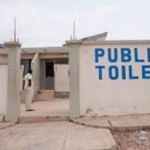
For many Ghanaians, finding a place to defecate remains a daily struggle. Across towns and villages every morning, one universal truth remains — every person will need a toilet at some point during the day. Food can wait, clothes may change, and technology may advance, but as our elders say, “the stomach has no calendar,” and the call of nature waits for no one.
Toilets are no longer luxuries or symbols of wealth. They are instruments of dignity, protectors of health, promoters of safety, enablers of productivity, and defenders of our environment. A toilet may be a simple structure, yet it carries the power to transform a household, a community, and indeed, a nation.
This year’s World Toilet Day, themed “We Will Always Need the Toilet,” is a timely reminder that sanitation is not an aspiration — it is a right, a necessity, and a moral duty we owe one another.
Ghana has made progress, but the challenge remains daunting. Data from the WHO/UNICEF Joint Monitoring Programme shows that the world is lagging behind the 2030 SDG sanitation target — and Ghana is no exception. With a population of about 35 million, living in roughly 9.75 million households, millions still lack access to toilets.
As recently as 2021, only about 59.3% of Ghanaian households had a toilet. Despite continuous investments and policy interventions, about 4.3 million households still lack toilets. Open defecation remains a stubborn challenge — 17.7% of Ghanaians, or nearly six million people, still defecate in the open.
Behind these figures lie stories of risk and indignity — women and girls venturing into bushes at night, families exposed to cholera and typhoid, farmers using water contaminated with faecal matter, and schoolchildren forced to choose between discomfort and missing lessons. Dignity begins with access to toilets; so do tourism, investment, and national pride.
Despite the gaps, there are bright spots. Ghana has proven that when commitment meets action, progress follows. The GAMA/GKMA Sanitation and Water Project has constructed more than 76,000 household toilets and over 600 gender-sensitive institutional facilities by April 2025. Programmes by World Vision, UNICEF, and community-based organisations have also helped many communities attain open-defecation-free status.
When finance aligns with political will, when local artisans are trained, and when households are supported through micro-loans, sanitation transforms lives, restores dignity, and enhances productivity.
Building toilets alone is not enough. Sustainable Development Goal 6 calls not only for “toilets for all” but also for safely managed sanitation — toilets that contain waste properly, are emptied safely, and lead to treatment and reuse without polluting the environment. Currently, only about 16% of Ghanaians have access to safely managed sanitation.
A toilet without proper containment is only half a solution. Overflowing pits become hazards, unaffordable emptying leads to old habits, and unenforced regulations become meaningless. As the proverb goes, “The cooking pot that has no lid invites flies.” We must close the sanitation loop — from construction to treatment — to ensure no Ghanaian is left behind.
Across the country, local innovations are emerging. In Accra and Kumasi, biodigester toilets have replaced shared latrines. Schools now operate under maintenance systems supported by small user fees and health clubs. Faecal sludge operators have modernised their work using digital tools. District Assemblies are mapping toilet gaps, enforcing by-laws, and linking households to trained artisans and microfinance.
Communities such as Dohia in the Volta Region have demonstrated that with respect, community mobilisation, and small seed funds, open defecation can become history. Ghanaians are not unwilling — they only need opportunity, support, and coordination.
Metropolitan, Municipal, and District Assemblies must enforce sanitation by-laws not to punish the poor, but to protect public health. Landlords must recognise that providing toilets is a duty, not a favour. Assemblies should publicise approved toilet technologies, trained artisans, and financing options.
The private sector must also see sanitation as both a social and economic opportunity — providing affordable, durable toilet solutions, expanding desludging services, and exploring waste-to-resource models. Innovation is vital: flood-resistant toilets in vulnerable zones, shared models in compound houses, and financial products for low-income households can drive progress.
An improved household toilet costs between GHS 3,000 and GHS 5,000. For many, instalment payments make this feasible; for the poorest, targeted subsidies are essential. Blended finance — combining public funds, development aid, and household contributions — can close the access gap.
Every delay keeps children out of school, girls unsafe, families sick, and rivers polluted. The world is off-track for SDG 6.2, but Ghana can lead Africa by example — not because we have the most resources, but because we have determination. As the proverb says, “When the roots are deep, there is no reason to fear the wind.”
On this World Toilet Day, let us commit not just to build toilets, but to build dignity, resilience, and shared responsibility. Government must lead with clear directives and enforcement; landlords must fulfil their obligations; the private sector must innovate; and communities must reject open defecation.
Media and faith leaders must speak boldly, and development partners must sustain their support.
A toilet behind every door means safety for women and girls, opportunity for children, cleanliness for communities, and pride for Ghana’s future. With strong policies, local action, private-sector engagement, and citizen responsibility, Ghana can close the sanitation gap and ensure that every home finds dignity behind a toilet door that locks.
May every Ghanaian home enjoy dignity, health, and peace of mind — behind a door that locks and beside a tap that flows.